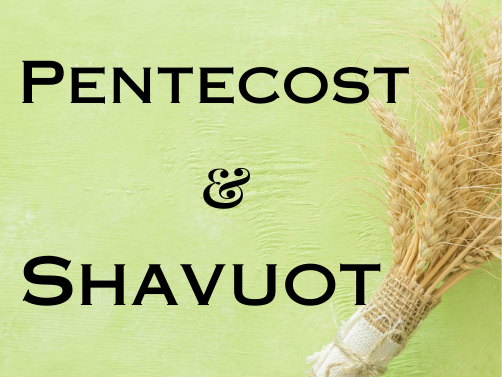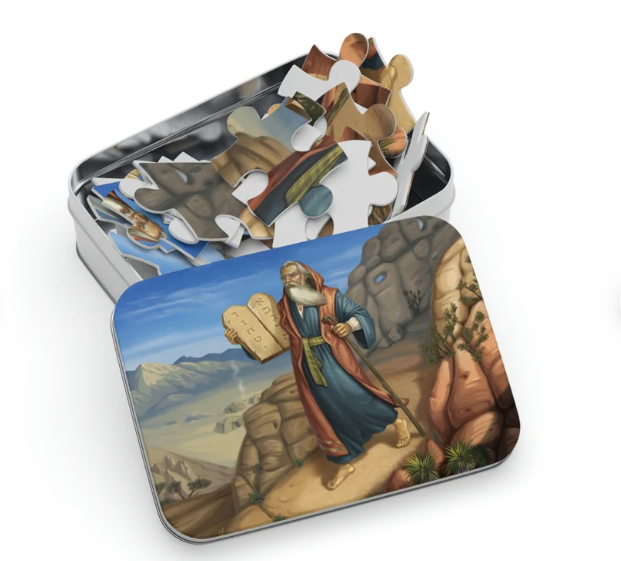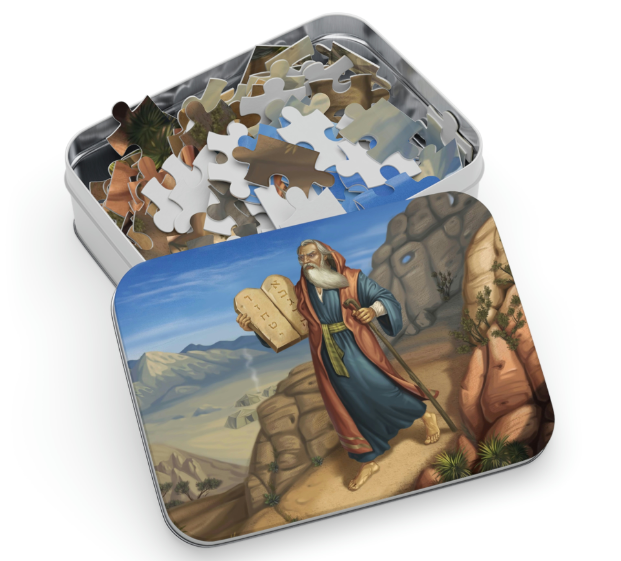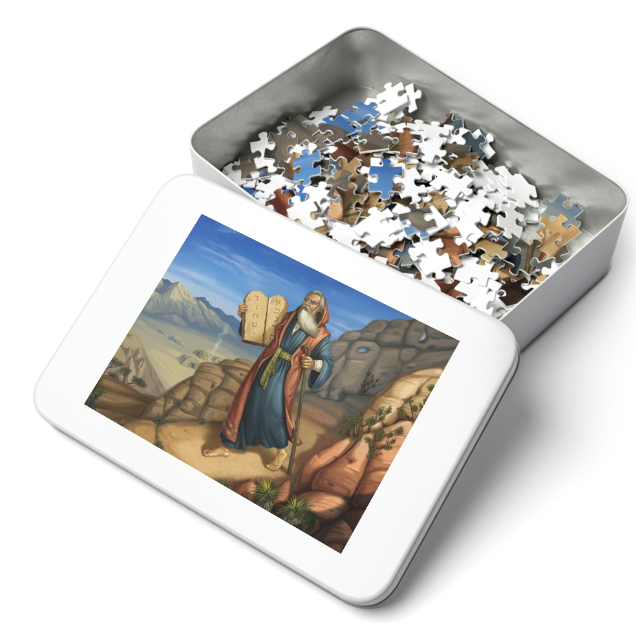Have you ever heard of Shavuot and Pentecost? These two celebrations hold great significance in the Jewish and Christian traditions, respectively. They both revolve around the themes of spiritual harvest and community gathering.
Shavuot, known as the Jewish Festival of Weeks, is a holiday with a rich historical background. It traces its origins back to ancient times when it marked the agricultural harvest and the giving of the Torah, the sacred Jewish scriptures. On the other hand, Pentecost is the Christian Feast of the Holy Spirit, commemorating the day when the Holy Spirit descended upon the disciples of Jesus after his resurrection.
Though these two celebrations differ in their historical and religious contexts, they share some fascinating similarities. Both holidays involve coming together as a community, embracing the bountiful harvest, and seeking spiritual renewal.
Want to understand What is Shavuot? Read our page on the basics of Shavuot and some of the most asked questions about this holiday. What is Shavuot and most asked questions

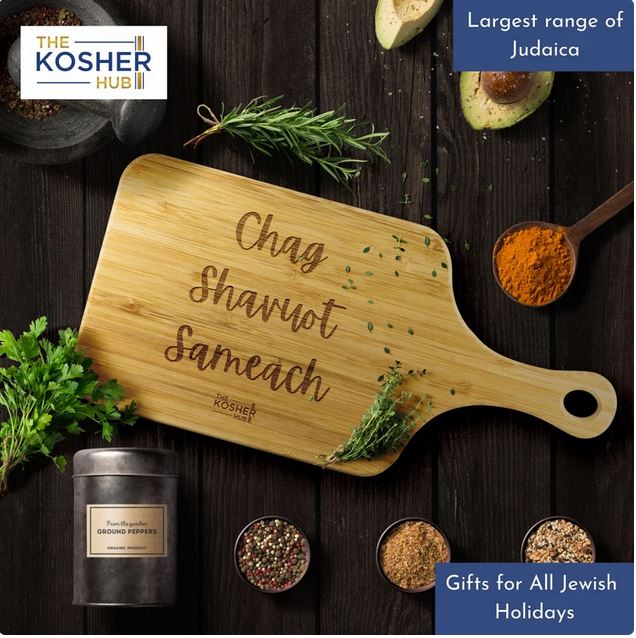


I. Shavuot: Jewish Festival of Weeks
Shavuot is a joyous occasion filled with tradition and deep meaning.
A. Historical background and biblical origin
Shavuot finds its roots in ancient Jewish history and is closely tied to the biblical account of the Israelites’ journey. According to the Hebrew Bible, after the liberation from slavery in Egypt, the Israelites wandered through the desert for forty years before reaching Mount Sinai. It was there, on this sacred mountain, that Moses received the Ten Commandments and the Torah directly from God.
B. Date and duration of the festival
Shavuot falls precisely fifty days after the second day of Passover, hence the name “Festival of Weeks.” The counting of these days is known as the “Counting of the Omer” and is a period of spiritual preparation and anticipation leading up to the holiday. Shavuot typically occurs in late May or early June and lasts for two days in the Diaspora and one day in Israel.
C. Symbolism of the holiday
Shavuot holds profound symbolism, representing the culmination of the Israelites’ journey and the receipt of the divine wisdom. It celebrates the giving of the Torah, which holds the ethical and moral guidelines that continue to guide Jewish life and spirituality to this day. The Torah is often referred to as the “Tree of Life,” symbolizing nourishment for the soul and a path towards righteousness.
D. Traditional customs and practices
Now, let me share some delightful customs and practices associated with Shavuot.
Torah study and revelation: Shavuot is a time for Jews to engage in deep study of the Torah. Many communities organize all-night study sessions known as “Tikkun Leil Shavuot.” People come together to explore and discuss various religious texts, teachings, and commentaries. It’s an opportunity to deepen one’s understanding of Jewish heritage and embrace the values embedded in the Torah.
Eating dairy foods: It may surprise you, but dairy plays a significant role during Shavuot. From creamy cheesecakes to delicious blintzes, (go HERE to get Blintzes recipes) dairy delights take center stage on this holiday. The reasons behind this tradition are varied. Some say it symbolizes the sweetness of the Torah, while others connect it to the biblical reference of Israel as “a land flowing with milk and honey.”
Decorations and agricultural themes: Many Jewish homes and synagogues are adorned with vibrant flowers and greenery during Shavuot. These decorations represent the lushness of Mount Sinai when the Torah was given. Additionally, the agricultural aspect of the holiday is honored by displaying baskets of fruits and grains, acknowledging the gratitude for the harvest and the abundance of nature.
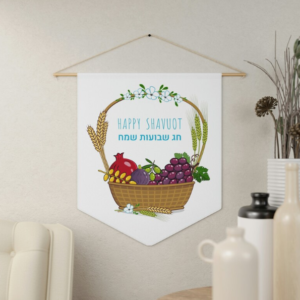
Happy Shavuot Sign with Basket
Personal anecdote: I remember attending a Shavuot celebration where the synagogue was adorned with beautiful floral arrangements. The atmosphere was filled with joy and anticipation as we engaged in lively discussions about the significance of the Torah in our lives. The aroma of freshly baked cheesecakes filled the air, and as we indulged in those sweet treats, we felt connected to generations past and present.
Shavuot is truly a celebration that brings the Jewish community together, fostering a sense of unity, gratitude, and a deep appreciation for the wisdom passed down through the ages. In the next section, we’ll explore Pentecost, its Christian counterpart, and discover the unique aspects of this inspiring feast of the Holy Spirit.
Shavuot Table Decor ideas
II. Pentecost: Christian Feast of the Holy Spirit
Pentecost, the Christian feast that holds immense spiritual significance within the faith.
A. Biblical roots and New Testament references
Pentecost finds its roots in the New Testament of the Bible, specifically in the book of Acts. The event is described in Acts 2, where it is stated that on the day of Pentecost, the disciples of Jesus were gathered together in Jerusalem. Suddenly, they were filled with the Holy Spirit, who appeared to them as tongues of fire. This powerful manifestation marked the birth of the early Christian community and the empowerment of believers to spread the message of Jesus Christ.
B. Observance and timing of Pentecost
Pentecost is observed by Christians worldwide, usually falling on the seventh Sunday after Easter. It holds a special place on the liturgical calendar, serving as a reminder of the transformative event that took place during the time of the early apostles.

C. Significance of the festival
Pentecost serves as a celebration of the Holy Spirit’s indwelling and guidance within the lives of believers. It is a recognition of the divine presence that empowers individuals to live out their faith and share the love of Christ with the world. The festival emphasizes the transformative nature of the Holy Spirit and the unity it brings among believers.
D. Worship and rituals associated with Pentecost
Pentecost is marked by unique worship practices and rituals within the Christian tradition.
Special church services and prayers: Churches often hold vibrant and spirited services on Pentecost. It is a time for believers to come together, reflecting on the significance of the Holy Spirit in their lives. Sermons, hymns, and prayers focus on the power and work of the Holy Spirit, seeking divine guidance, and experiencing spiritual renewal.
Symbolism of the Holy Spirit and fire: The imagery of fire is strongly associated with Pentecost. It symbolizes the Holy Spirit’s purifying and illuminating presence. Churches may incorporate candles, red decorations, and even symbolic enactments of the descending of the Holy Spirit, further enriching the worship experience.
The practice of Confirmation: Pentecost is a common time for the sacrament of Confirmation within many Christian denominations. It is a significant milestone in the lives of young believers, as they publicly affirm their faith and receive the Holy Spirit, strengthening their commitment to Christ and the church.
Shavuot Educational Puzzles for all ages
III. Shavuot and Pentecost around the world
Shavuot and Pentecost are celebrated by diverse communities around the world, each bringing their unique cultural expressions and rituals to these joyous occasions.
A. Regional customs and variations
Shavuot: In Israel, Shavuot takes on a special significance as it coincides with the wheat harvest. It is customary for people to visit the countryside, partake in outdoor activities, and enjoy dairy products. In Ashkenazi Jewish communities, the custom of decorating homes and synagogues with flowers and greenery is prevalent. Sephardic Jews often incorporate specific dishes from their cultural traditions into their festive meals.

White Shavuot Apron Pentecost: Pentecost is celebrated in various ways around the globe. In Greece and Cyprus, for example, the holiday is known as “Pentikosti” and is marked with processions, church services, and feasting on traditional foods. In some African countries, vibrant cultural dances and performances are part of the Pentecost celebrations. Christian communities in Asia, such as in the Philippines, observe the festival with lively street parades and special church services.
B. Diverse cultural expressions and rituals
Shavuot: In Yemenite Jewish communities, it is customary to bake special bread called “Jachnun” during Shavuot. Ethiopian Jews celebrate the holiday with a festive meal known as “Sigd,” where prayers, fasting, and communal gatherings take place. These unique cultural expressions highlight the diversity and richness of Shavuot celebrations across different Jewish communities.
Pentecost: In Latin American countries, Pentecost is celebrated with vibrant processions, colorful decorations, and traditional dances. The festival often intertwines with local customs and traditions, creating a fusion of Christian faith and cultural heritage. For example, in Guatemala, large kites are flown to symbolize the connection between heaven and earth during the Pentecost festivities.
Discover your family story with a 14 day FREE trial!
IV. Shavuot and Pentecost: Relevance and Lessons for Today
Shavuot and Pentecost, with their deep-rooted traditions and spiritual significance, offer valuable lessons that resonate with us even in the modern world. Let’s reflect on the relevance of these celebrations and the timeless wisdom they impart.
A. Embracing spiritual growth and learning
In our fast-paced lives, it’s crucial to carve out moments for spiritual growth and learning, just as Shavuot and Pentecost emphasize. The commitment to study and engage with sacred texts, whether the Torah or the teachings of Jesus, encourages us to seek wisdom, broaden our perspectives, and deepen our understanding of our faith. In a world filled with distractions, these celebrations remind us to prioritize our spiritual well-being and nourish our souls.

B. Fostering community and unity
Shavuot and Pentecost underscore the importance of community and the strength found in gathering together. Regardless of religious affiliation, the value of belonging to a supportive community cannot be overstated. These celebrations prompt us to come together, share our stories, and find common ground, fostering a sense of unity, understanding, and compassion. In an increasingly divided world, the spirit of community espoused by Shavuot and Pentecost serves as a reminder of our shared humanity and the power of coming together.
C. Cultivating gratitude and generosity
Both Shavuot and Pentecost encourage gratitude for the bountiful blessings we receive, whether in the form of an agricultural harvest or the outpouring of the Holy Spirit. These celebrations remind us to express gratitude for the abundance in our lives and to cultivate a spirit of generosity towards others. By recognizing and appreciating the gifts we have been given, we are inspired to extend kindness, compassion, and support to those around us.
D. Seeking personal transformation and renewal
Shavuot and Pentecost invite us to embark on a journey of personal transformation and renewal. Just as the Israelites received the Torah and the disciples experienced the empowering presence of the Holy Spirit, we are reminded of our capacity for growth, change, and spiritual renewal. These celebrations encourage us to reflect on our lives, identify areas for improvement, and open ourselves to the transformative power of faith.
Similarities between Shavuot and Pentecost
Shavuot and Pentecost, two ancient celebrations rooted in Jewish and Christian traditions, offer us a glimpse into the profound connections between faith, community, and personal transformation. These festivals remind us of the timeless values that unite humanity, transcending religious boundaries.
Shavuot teaches us the significance of studying sacred texts, cultivating gratitude, and embracing the blessings of community. It invites us to engage in deep reflection, seeking wisdom and guidance to navigate our lives with purpose and integrity. Pentecost, on the other hand, reminds us of the empowering presence of the Holy Spirit, urging us to embrace spiritual renewal, unity, and the transformative power of faith.

As we explored the rich tapestry of Shavuot and Pentecost celebrations around the world, we witnessed the diverse cultural expressions and rituals that enhance these festive occasions. From the wheat harvest in Israel to the vibrant processions in Latin America, each region brings its own unique flavor to these celebrations, reinforcing the message of community, gratitude, and spiritual growth.
Moreover, Shavuot and Pentecost continue to be relevant in our modern world. They call us to prioritize our spiritual well-being, nurture supportive communities, cultivate gratitude, and seek personal transformation. These celebrations serve as reminders of our shared humanity, offering lessons that can guide us in building a more compassionate, united, and purposeful society.
So, whether you find yourself immersed in the all-night Torah study sessions of Shavuot or the spirited worship services of Pentecost, remember that these celebrations hold timeless wisdom for us all. Let us embrace the lessons of Shavuot and Pentecost, allowing them to inspire us on our individual and collective journeys towards a more enlightened and harmonious world.
As we conclude our exploration of Shavuot and Pentecost, may we carry the spirit of these celebrations in our hearts, fostering gratitude, unity, and personal growth. May we continue to seek wisdom, embrace our shared humanity, and strive to make a positive impact in the world.

